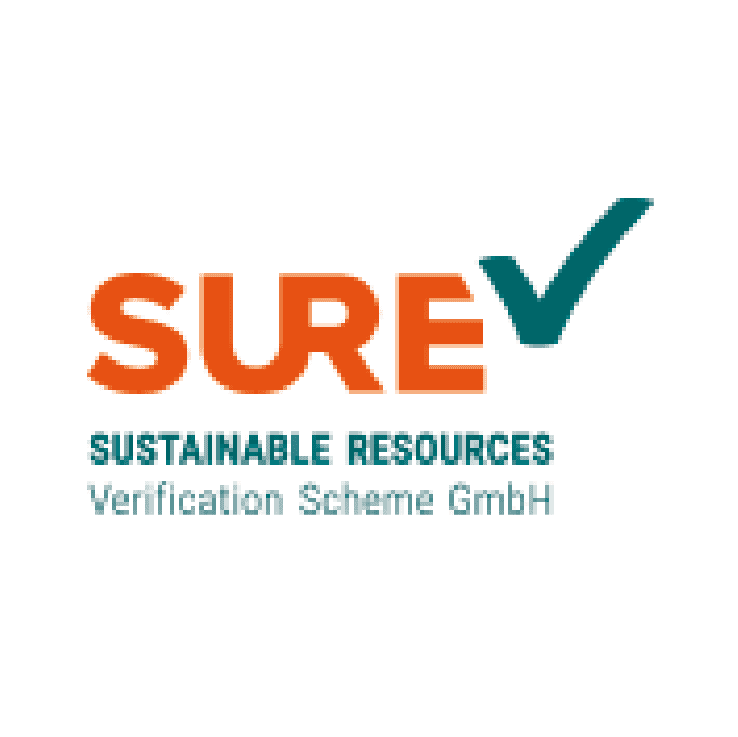Select Sidearea
Populate the sidearea with useful widgets. It’s simple to add images, categories, latest post, social media icon links, tag clouds, and more.
hello@youremail.com
+1234567890
+1234567890
Populate the sidearea with useful widgets. It’s simple to add images, categories, latest post, social media icon links, tag clouds, and more.


REDI4Heat is a new EU project focusing on the heating & cooling sector, which represents around 50% of EU energy demand. Only 23% of that energy is green and so Member States need to accelerate renewable energy deployment in order to meet their climate targets. The project focuses on five Member States and aims to identify bottlenecks in the National Energy and Climate Plans (NECPs) to propose effective strategies for increased renewable H&C uptake. In the initial stages of the project, Bioenergy Europe will coordinate the assessment of the renewable H&C support measures already implemented or anticipated in the NECPs. In the second stage of the project, the association will facilitate the national implementation of policy recommendations through the organisation of meetings and workshops with key stakeholders.
The project aims to produce a mass deployment of improved and market ready agrobiomass heating solutions in Europe. Agrobiomass is a large, underexploited and indigenous resource, which can support the achievement of the European Energy and Climate targets, while promoting rural development and circular economy.
Actions will be mainly located in 6 European countries (EL, ES, FR, RO, HR and UA; 5 EU-28+Ukraine) where an extensive national movement is intended to be created by the engagement, alignment of interests and creation of policy, financial and social conditions favouring the expansion of agrobiomass heating; at the EU level, specific policy recommendations regarding the efficiency and emissions of agrobiomass heating solutions will be passed on to relevant bodies for the development of new regulations.
The MUSIC project, funded by the EU’s Horizon2020 programme, aims to facilitate market uptake of Intermediate Bioenergy Carriers (IBCs) by developing feedstock mobilisation strategies, improved logistics and IBC trade centres. The project is coordinated by BTG Biomass Technology Group, the Netherlands. The project will develop strategies to mobilise the use of non-food biomass, determine the most cost-effective logistics and facilitate the trade of IBCs. Converting biomass (e.g. forest residues, straw) to IBCs makes the material denser in energy, more homogeneous and thus easier to transport, store and use.
Technologies for the biomass conversion, like fast pyrolysis or torrefaction, are rapidly developing. To achieve the full potential offered by IBCs this technology development needs to be accompanied by the implementation of appropriate logistics. A core action in MUSIC is the elaboration of 4 case studies across Europe, in co-operation with both large industries (e.g. steel producer Arcelor Mittal, oil company ENI) and SMEs (e.g. technology developers BTG-BTL and Torr-Coal), to determine the most cost-effective routes for biomass and IBC mobilisation. Furthermore, improving the trade of intermediate bioenergy carriers both on regional and EU level is targeted. MUSIC will also involve, engage and support regional stakeholders for the establishment of IBC value chains.
 The RE4Industry project, funded by the Horizon2020 Research and Innovation Programme, has as its main objective to facilitate, on behalf of the energy intensive industry sector (EII) within Europe, the smooth and more secure transition to the adoption of Renewable Energies (RE).
The RE4Industry project, funded by the Horizon2020 Research and Innovation Programme, has as its main objective to facilitate, on behalf of the energy intensive industry sector (EII) within Europe, the smooth and more secure transition to the adoption of Renewable Energies (RE).
Considering that Industry represents around a quarter of the final energy consumption in the EU, EII’s are expected to play a vital role to achieve carbon neutrality within the EU by 2050. For this reason, the project more precisely works towards identifying the most appropriate and feasible (economically and technically) renewable solutions for EII’s, defining an action plan for industrial decarbonisation and transforming the EU industrial landscape into a large market niche for the uptake of RE, all the while defining the appropriate framework conditions for short-term (2030) and long-term (2050) visions.
The European Technology and Innovation Platform on Renewable Heating & Cooling (RHC-ETIP) brings together stakeholders from the biomass, geothermal, solar thermal and heat pump sectors – including the related industries such as district heating and cooling, thermal energy storage, and hybrid systems – to define a common strategy for increasing the use of renewable energy technologies for heating and cooling.
The Cross Border Bioenergy project developed a practicable tool for bioenergy companies to assess the attractiveness of European markets for cross-border investments, thereby making them less dependent on fluctuating domestic market conditions and strengthening the whole bioenergy industry.
The project BioGrace-II harmonised calculations of greenhouse gas (GHG) emissions for electricity, heating and cooling from biomass. The project builds upon the earlier (2010-2012) IEE-project BioGrace which harmonised GHG calculations for biofuels for transport.
BioRES introduced the innovative concept of Biomass Logistic and Trade Centres (BLTCs) in Serbia, Croatia, and Bulgaria on the basis of cooperation with technology leaders from Austria, Slovenia, Germany, and Finland. This will help to increase the demand for woody bioenergy products (processed fire wood, wood chips, wood pellets, and wood briquettes) in these countries and contribute to the achievement of EU targets set out in the RES Directive (2009/28/EC).
The Biomass Policies project brought together biomass and bioenergy experts from European institutions and 11 national energy agencies to provide a better understanding of how biomass resources can be efficiently integrated into the energy & biomaterial systems while taking into account the availability of resources, new conversion technologies and stimulation and regulation measures.
The goal of this project was to support and promote the (partial) substitution of fossil fuels (coal, oil, gas) used for heating, by available bioenergy sources (industrial wastes, forest biomass, straw and other agricultural biomass) in the project partners’ countries and beyond. In this context, the project contributed to increase much-needed security of energy supply through lower dependence on fossil fuels from politically volatile sources.
http://www.bioenergy4business.eu/
As part of the project, three tools were developed and are available for download:
BioAlgaeSorb focused on enabling European SMEs to remediate waste, reduce Green House Gas emissions and produce biofuels via microalgae cultivation. The project developed the production and exploitation of algae biomass together with the production of valuable bio-products/co-products using a biorefinery approach. The production of algae and its use for biofuels whilst valorising the co-products would not only reduce GHG emissions but would also address a number of issues such as fresh water supply (microalgae require far less fresh water than any other crop), and provide useful co-products such as bioplastics , raw materials for chemicals etc.
The agriculture and aquaculture sectors are under continuous pressure to improve sustainability and reduce environmental impact. BiFFiO- Cooperation between the aquaculture and agriculture sectors with the intent to use animal manure and fish faeces for sustainable production and utilisation of renewable The BiFFiO consortium developed an economical and efficient system for handling mixed waste from aquaculture and agriculture. The project also made recommendations as to how the energy produced could best be used.
BASIS engaged with bioenergy project developers and investors, providing them with a comprehensive view on the sustainable supply and competition for wood chip boilers, using intuitive regional maps of all EU member states. Information on wood supply potential combined with existing use of wood chips and sustainability aspects influencing such supply is processed on the basis of a sound methodology
The market for solid biofuels is growing rapidly, and the demand for raw materials is increasing. The project aimed at extending the raw material basis for biofuel production covering also wooden materials of lower quality as well as agricultural raw materials and residues, which often show unfavourable ash melting properties.
Since 2015, Bioenergy Europe has been a partner of the Africa-EU Renewable Energy Cooperation Programme (RECP), which was launched by European and African heads of state under the Africa-EU Energy Partnership (AEEP). Bioenergy Europe plays an important role helping to mobilise European bioenergy companies for joint-business development in African renewable energy markets.

Represents the interests of the wood pellet sector to ensure its sustainable developement.

The world-leading, transparent and independent certification scheme for wood pellets.

enSURE Compliance with RED II Sustainability Requirements for the Production of Electricity, Heating and Cooling from Biomass.
